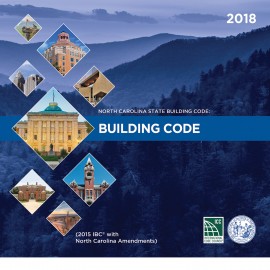Contractor Exam Licensing Program
Navigating the Hurdles: Getting Your Contractor License in North Carolina
Introduction
Obtaining a contractor license in North Carolina is a crucial step for anyone looking to enter the construction industry in the state. While it’s an essential process, it can also be fraught with challenges that can be daunting for many aspiring contractors. This blog post aims to shed light on these challenges and offer insights into how to navigate them effectively.
Understanding North Carolina’s Licensing Requirements
Before delving into the challenges, it’s important to understand the basic requirements for a contractor license in North Carolina. The state requires contractors to obtain a license for any project valued $40,000 or more. There are three primary classifications of licenses: Limited, Intermediate, and Unlimited, each with its own financial and experience prerequisites.
Challenge 1: Navigating the Application Process
The first hurdle is the application process itself. The North Carolina Licensing Board for General Contractors oversees this process, which includes:
- Submission of a detailed application
- Proof of financial stability and responsibility
- Background check
The complexity of the application can be overwhelming, and any errors or omissions can lead to delays or rejections.
Challenge 2: Preparing for the Licensing Exam
Passing the licensing exam is a significant challenge. The exam covers a range of topics, including laws and regulations specific to North Carolina, construction techniques, and business management. Effective preparation requires:
- Comprehensive study and understanding of the exam material
- Familiarity with the format and types of questions asked
- Time management skills to complete the exam within the allotted time
Challenge 3: Meeting Financial Requirements
The financial requirements for different levels of licensing can be a barrier for some applicants. Demonstrating financial solvency and responsibility is crucial, and for higher levels of licenses, this involves:
- Providing detailed financial statements
- Maintaining a certain level of working capital or net worth
- Obtaining a surety bond or equivalent financial guarantee
Challenge 4: Maintaining Compliance and Continuing Education
Once licensed, contractors in North Carolina must adhere to ongoing requirements. These include:
- Staying updated with changes in laws and regulations
- Completing continuing education (for certain licenses)
- Renewing the license periodically, which involves its own set of requirements
Tips for Success
- Start Early: Begin the application process well in advance of when you plan to start your contracting work.
- Seek Guidance: Carolina Seminars are here to help and understand the nuances of North Carolina’s licensing process.
- Invest in Preparation: Dedicate sufficient time and resources to prepare for the licensing exam, including taking preparatory courses if needed.
- Stay Informed: Keep abreast of any changes in legislation or requirements that might affect your license.
Conclusion
Obtaining a contractor license in North Carolina is no small feat. It demands diligence, preparation, and a clear understanding of the state’s specific requirements. By anticipating these challenges and preparing accordingly, aspiring contractors can navigate this process more smoothly and set the foundation for a successful career in the construction industry in North Carolina.


